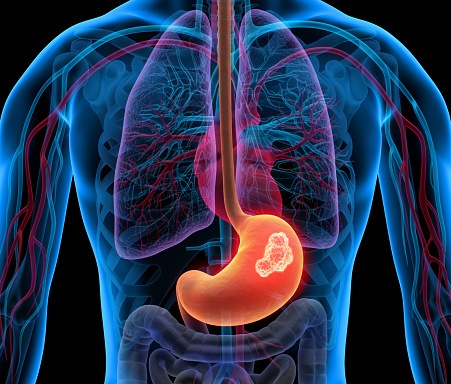A new biomarker discovered by researchers at the University of Arizona Health Science may help with early detection of stomach cancer and potentially improve treatment outcomes.
Gastric, or stomach cancer is the third most common cause of cancer-related deaths worldwide. Stomach cancer diagnosis currently requires endoscopic collection of stomach tissue, while the new biomarker can be detected through a simple blood test.
The biomarker, MiR130b, is a microRNA, a non-coding RNA molecule that regulates gene expression. MiR130b is produced by immune cells called myeloid-derived suppressor cells (MDSCs), which are associated with infections caused by the bacteria Helicobacter pylori (H. pylori), often found in ulcers. The presence of these cells in the stomach can correlate with early, preneoplastic changes that can lead to the development of cancer even after an H. pylori infection has passed.
MiR130b was initially discovered using mouse models that simulated changes in the stomach like those caused by H. pylori infection. In a retrospective analysis, the team was then able to detect the same microRNA in the plasma of human patients who either had precancerous changes or had already had progressed to cancer.
“This molecular signature (the microRNA – MiR130b) that we discovered may help us see if patients have changes in their mucosa (the membrane that lines the stomach) related to having H. pylori,” Juanita L. Merchant, MD, PhD, Chief of Gastroenterology and Hepatology, who led the study, said in a press release. “A blood sample would be less invasive and then could be a way to make the decision whether we need to bring a patient in for an endoscopy.”
The team’s findings were published in Gut.
Credit: Original article published here.









